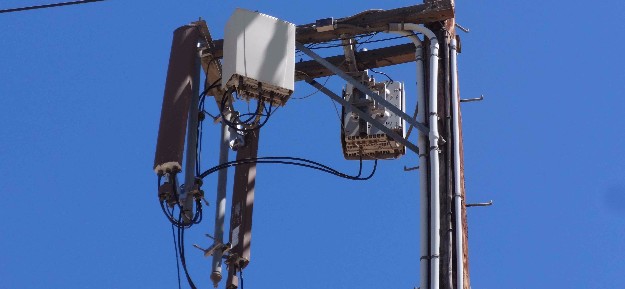
Open access to city-owned street light poles at below market rates and a fast track for cell site approvals has landed on the floor of the California senate. Last week, the appropriations committee gave the go ahead to senate bill 649, which, if passed, would slash city and county control of municipally owned vertical infrastructure and require automatic approval of any "small cell" proposed for installation in the public right of way or in commercial and industrial zones.
The bill had been put into the "suspense file" by the senate appropriations committee, which is a legislative limbo where many bills go to die. Not this one, though. Committee members voted 6-zip in favor of passing it. Senate minority leader Pat Bates (R – Orange County) is listed as no vote recorded, which could have been a low key way of registering an objection or she just might have been out of the room at the time. Either way, it doesn’t make much difference.
Not surprisingly, SB 649 is vociferously opposed by cities and counties. On the other side is AT&T, Verizon and the mobile industry’s lobbying front, CTIA (originally known as the Cellular Telecommunications Industry Association). They’ve found a willing partner in senator Ben Hueso (D – San Diego), who is carrying the bill on their behalf.
Lobbyists for local government have been predicting the demise of SB 649, either by progressively watering it down with amendments or killing it by other means. So far, that strategy hasn’t accomplished much. Although it can still be amended, the language that’s up for a senate vote now is the same as it was when it was unanimously approved by the governance and finance committee more than a month ago. It’s better than what Hueso originally put on the table, but all that means is that it’s gone from insanely one-sided to seriously awful – an improvement of sorts, but still a major win for mobile interests.
The senate’s deadline for passing SB 649 and handing it over to the assembly for its consideration is Friday.
